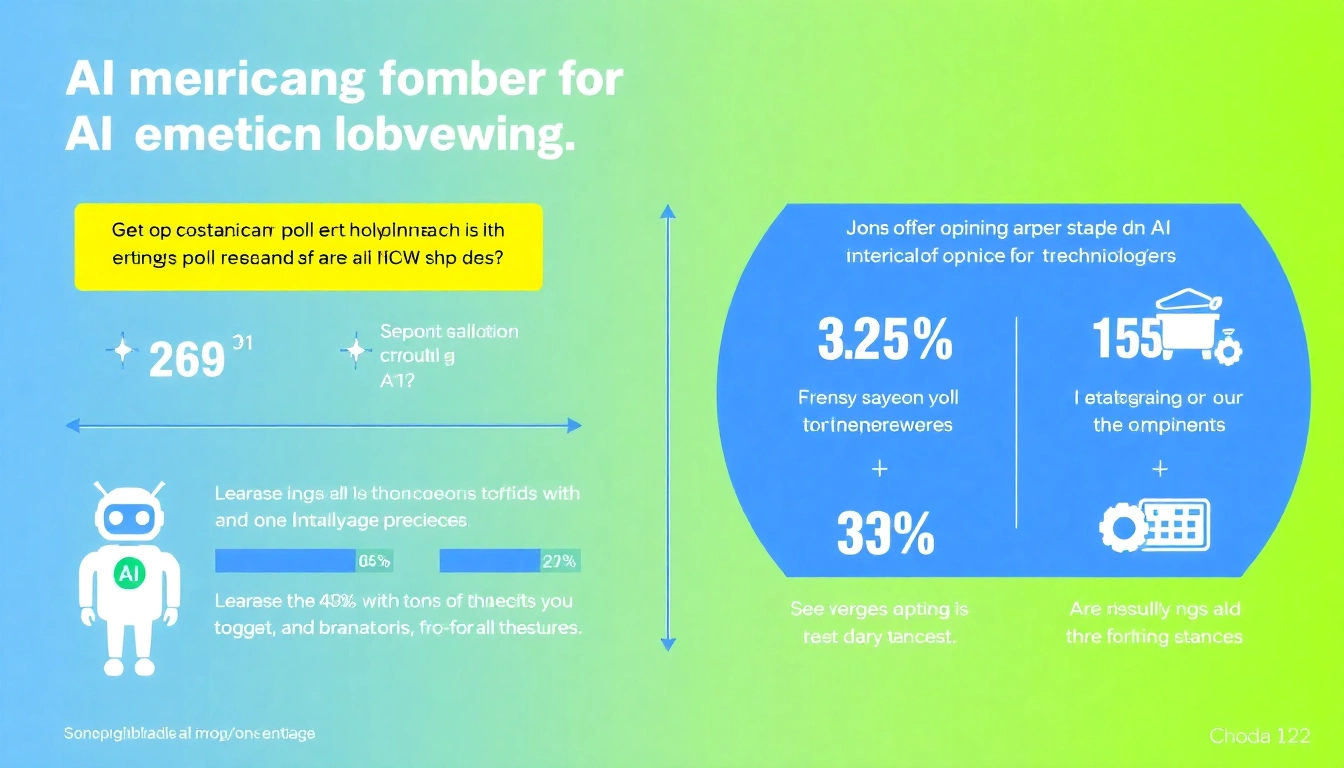
Understanding AI Marketing Tools
What Are AI Marketing Tools?
AI marketing tools are sophisticated software applications that leverage artificial intelligence technology to enhance marketing efforts. These tools integrate data analysis, machine learning, and automation features to help businesses optimize their marketing strategies. Essentially, they assist in understanding consumer behaviors, predicting market trends, and personalizing customer interactions at scale.
With the rise of big data, marketers are increasingly turning to these tools to sift through vast amounts of information to gain actionable insights. Whether it’s automating social media posts, analyzing customer sentiment, or personalizing email campaigns, AI marketing tools are transforming how businesses approach their marketing efforts.
The Benefits of Using AI in Marketing
The application of AI in marketing offers numerous advantages that can significantly enhance both the efficiency and effectiveness of marketing campaigns. Some key benefits include:
- Increased Efficiency: AI tools automate repetitive tasks, allowing marketing teams to focus on strategic initiatives and creative work.
- Enhanced Personalization: By analyzing user data, AI marketing tools can tailor content and recommendations to individual customers, leading to improved user experiences and higher conversion rates.
- Data Analysis and Insights: AI can process large data sets far more quickly than humans, enabling marketers to make informed decisions based on real-time data analysis.
- Predictive Analytics: With AI, businesses can forecast trends and customer behaviors, allowing them to stay ahead of the competition.
- Cost-Effective Campaigns: AI helps in optimizing marketing budgets by predicting which channels and strategies will yield the best ROI.
Common Features of AI Marketing Tools
AI marketing tools come equipped with a variety of features that enhance their functionality, including:
- Chatbots: AI-driven chatbots can interact with customers in real time, providing answers and support around the clock.
- Email Automation: Tools that automatically segment audiences and personalize email content based on user behavior.
- Content Generation: AI writing tools that can create blog posts, social media updates, and product descriptions based on predefined parameters.
- Sentiment Analysis: AI algorithms that assess customer sentiment from social media, reviews, and feedback to gauge brand perception.
- Ad Targeting and Optimization: AI enables precise targeting and retargeting of ads, ensuring they reach the most suitable audience.
Best AI Marketing Tools for 2025
Top Tools for Content Creation
Content creation is a critical aspect of any marketing strategy, and several AI tools are leading the way in 2025:
- Jasper AI: An exceptional tool for generating high-quality marketing copy. Its capability to understand context and generate engaging content makes it a favorite among marketers.
- Copy.ai: Another powerful AI writing assistant that helps create varied content types, including ad copy, social media posts, and long-form articles.
- Surfer SEO: Combines AI with SEO best practices to optimize content according to search engine algorithms, improving visibility and ranking.
Popular Tools for Social Media Management
Managing social media effectively is essential for brands, and several AI tools have been developed to assist in this area:
- Buffer: Uses AI to analyze posting times and engagement patterns, allowing marketers to optimize post timing for maximum reach.
- FeedHive: Offers content recycling features and conditional posting, helping brands keep their content fresh while maintaining a constant online presence.
- Hootsuite: This tool incorporates AI to provide insights on the best content type and posting schedule, enhancing engagement across platforms.
AI Tools for Automated Email Marketing
Email marketing remains a vital channel, and AI tools are making it more efficient:
- Mailchimp: Enhances email marketing campaigns with AI-driven analytics to improve open rates and conversions.
- HubSpot: Integrates AI for advanced segmentation and personalized marketing automation, allowing for tailored campaigns.
- Sender: An AI-powered email marketing tool that optimizes subject lines and send times based on user behavior.
Implementing AI Marketing Tools
Steps to Integrate AI Tools into Your Workflow
Integrating AI marketing tools into your existing marketing strategy requires careful planning and execution. Here are steps marketers should follow:
- Assess Your Needs: Identify specific areas in your marketing strategy that could benefit from AI, such as data analysis, content creation, or customer engagement.
- Select the Right Tools: Choose appropriate AI tools that align with your marketing objectives and budget. Consider usability and integration with existing systems.
- Train Your Team: Ensure your team is well-trained in using the new tools to maximize their potential. Training can include workshops, online courses, or guided tutorials.
- Test and Optimize: Implement the tools in phases, allowing for testing and optimization based on the feedback and performance metrics.
- Monitor Performance: Continuously track the effectiveness of the AI tools and adjust strategies as needed to improve outcomes.
How to Train Your Team on AI Tools
With the introduction of AI marketing tools, training becomes essential for maximizing their effectiveness:
- Hands-On Workshops: Provide practical sessions where team members can interact with tools and ask questions.
- Online Resources: Utilize e-learning platforms that offer courses on the specific tools being implemented.
- Regular Check-Ins: Schedule periodic meetings to discuss challenges and share best practices, ensuring a continuous learning environment.
Measuring Success with AI Marketing Tools
Success measurement is critical in understanding the impact of AI tools on your marketing strategy:
Key performance indicators (KPIs) should include:
- Conversion Rates: Track the percentage of leads converted into customers as a result of personalized marketing efforts.
- Engagement Metrics: Monitor likes, shares, comments, and click-through rates on social media posts or email campaigns.
- Cost Per Acquisition (CPA): Measure the cost-effectiveness of your marketing campaigns, ensuring that AI tools are contributing to lower acquisition costs.
- Return on Investment (ROI): Evaluate the financial return gained from the investment made in AI tools and technologies.
Case Studies: Success Stories with AI Marketing Tools
Businesses That Excelled with AI
Many businesses have successfully implemented AI marketing tools to elevate their marketing efforts. Some notable examples include:
- Sephora: Leveraged AI chatbots for customer service and personalized product recommendations, leading to increased customer satisfaction and sales.
- Starbucks: Utilized AI to optimize their marketing campaigns and personalize communication through their mobile apps, resulting in higher customer retention rates.
- Netflix: Uses sophisticated algorithms to analyze viewer preferences which have helped in providing personalized content recommendations, enhancing user engagement.
Lessons Learned from AI Marketing Implementations
From the above cases, several lessons can be drawn:
- Start Small: Begin with a pilot program to understand the intricacies before a full-scale rollout.
- Focus on Data Quality: High-quality data input can significantly influence the effectiveness of AI outputs.
- Customer-Centric Approach: AI should enhance customer experiences; always prioritize user satisfaction when integrating new technology.
Future-Proofing Your Marketing Strategy with AI
As technology continues to advance, businesses must stay ahead by anticipating future trends in AI marketing:
- Embrace Continuous Learning: Stay updated with the latest AI tools and trends to remain competitive.
- Focus on Ethics: As AI usage grows, ensure marketing practices remain ethical and transparent.
- Adopt a Long-Term Vision: Create strategies that are adaptable and scalable to incorporate future AI developments.
Challenges and Considerations
Common Pitfalls When Adopting AI Tools
While the benefits of AI marketing tools are substantial, various challenges may arise during their implementation:
- Resistance to Change: Teams may be hesitant to adopt new technologies, leading to underutilization. Overcoming this requires effective change management strategies.
- Data Privacy Concerns: With stricter regulations on data usage, ensuring compliance is pivotal to maintaining customer trust.
- Integration Issues: Difficulty in integrating new AI tools with legacy systems can hinder functionality and efficiency.
Ethical Considerations in AI Marketing
As AI plays a more prominent role in marketing, ethical concerns also need addressing:
- Transparency: Clearly communicate how AI tools are used in marketing communications and respect user privacy.
- Bias in Algorithms: Ensure that AI algorithms are regularly reviewed and adjusted to prevent biased outputs that can mislead consumers.
- Consumer Autonomy: Maintain a balance between personalization and consumer autonomy to avoid overwhelming users with tailored content.
Staying Updated with AI Trends
To remain competitive, marketers must keep up with emerging trends in AI:
Strategies for staying updated include:
- Industry Publications: Subscribe to journals and blogs that focus on AI and marketing trends.
- Networking: Attend industry conferences and webinars to engage with experts and learn from their experiences.
- Professional Development: Invest in training workshops or courses to enhance your understanding of new tools and technologies in the market.






